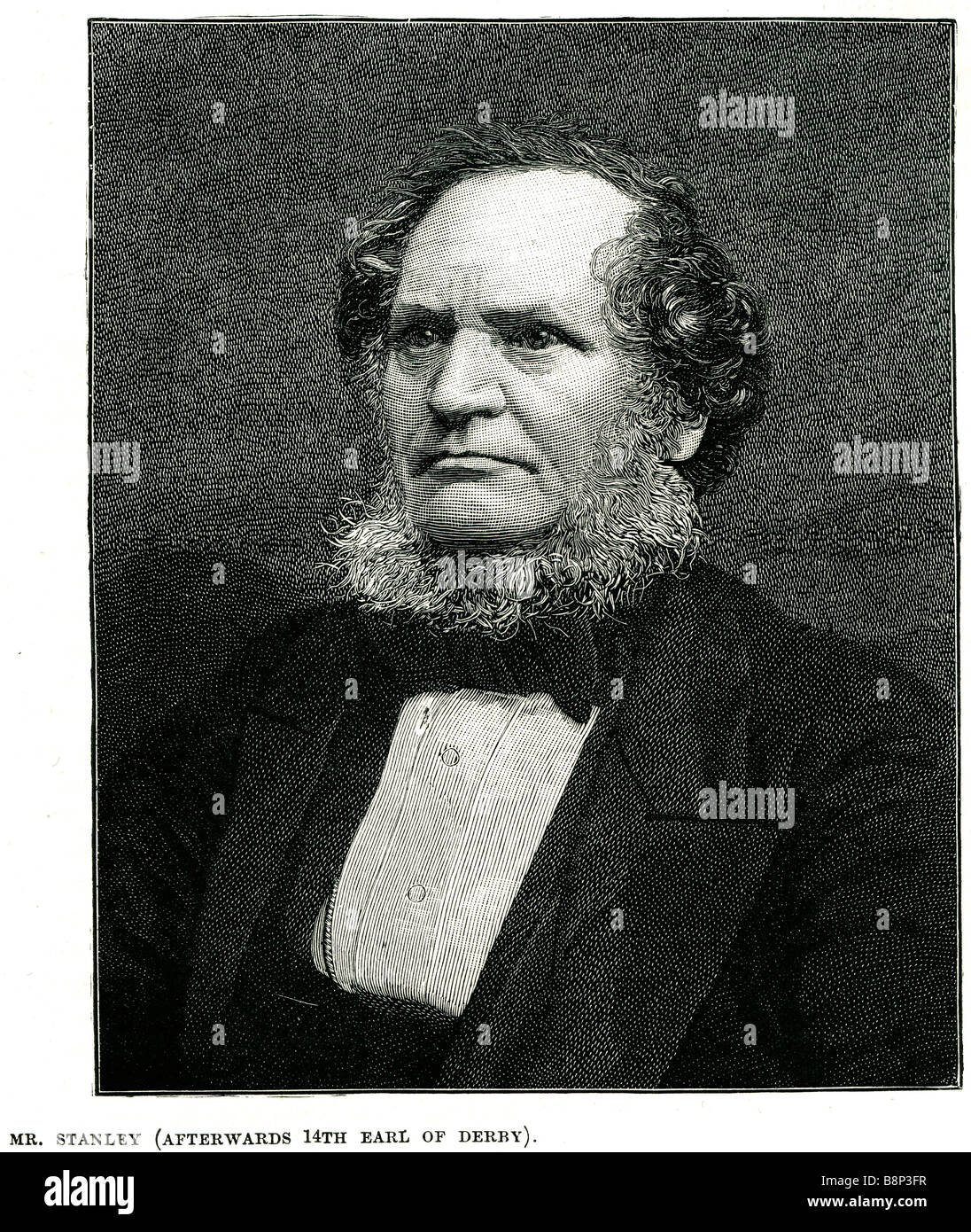EDWARD GEOFFREY SMITH STANLEY, 14th earl of Derby (1799-1869), the "Rupert of Debate," born at Knowsley in Lancashire on the 29t

Image details
Contributor:
19th era / Alamy Stock PhotoImage ID:
B8P3FRFile size:
49.6 MB (5.2 MB Compressed download)Releases:
Model - no | Property - noDo I need a release?Dimensions:
3825 x 4534 px | 32.4 x 38.4 cm | 12.8 x 15.1 inches | 300dpiMore information:
EDWARD GEOFFREY SMITH STANLEY, 14th earl of Derby (1799-1869), the "Rupert of Debate, " born at Knowsley in Lancashire on the 29th of March 1799, grandson of the 12th earl and eldest son of Lord Stanley, subsequently (1834) 13th earl of Derby (1775-1851). He was educated at Eton and at Christ Church, Oxford, where he distinguished himself as a classical scholar, though he took no degree. In 1819 he obtained the Chancellor's prize for Latin verse, the subject being "Syracuse." He gave early promise of his future eminence as an orator, and in his youth he used to practise elocution under the instruction of Lady Derby, his grandfather's second wife, the actress, Elizabeth Farren. In 1820 he was returned for Stockbridge in Hampshire, one of the nomination boroughs whose electoral rights were swept away by the Reform Bill of 1832, Stanley being a warm advocate of their destruction. His maiden speech was delivered early in the session of 1824 in the debate on a private bill for lighting Manchester with gas. On the 6th of May 1824 he delivered a vehement and eloquent speech against Joseph Hume's motion for a reduction of the Irish Church establishment, maintaining in its most conservative form the doctrine that church property is as sacred as private property. From this time his appearances became frequent; and he soon asserted his place as one of the most powerful speakers in the House. Specially noticeable almost from the first was the skill he displayed in reply. Macaulay, in an essay published in 1834, remarked that he seemed to possess intuitively the faculty which in most men is developed only by long and laborious practice. In the autumn of 1824 Stanley went on an extended tour through Canada and the United States in company with Mr Labouchere, afterwards Lord Taunton, and Mr Evelyn Denison, afterwards Lord Ossington. In May of the following year he married the second daughter of Edward Bootle-Wilbraham, created Baron Skelmersdale in 1828, by whom he had a family